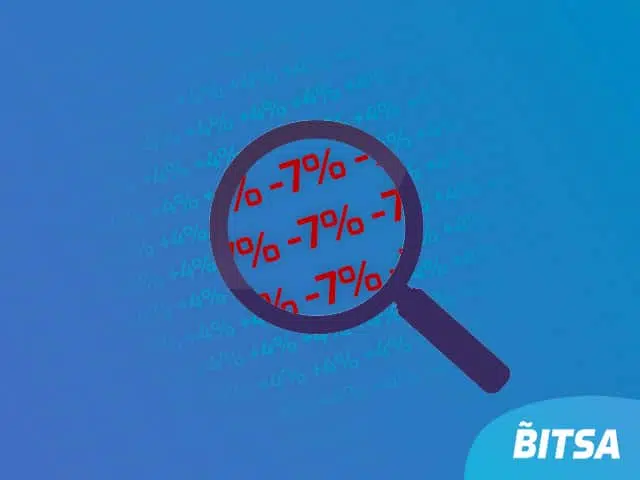
The most common hidden bank fees
It has happened to all of us. After much thought, we decided to open an account at the bank, in which “we least dislike”. They allow us to open a free account, after signing a contract full of conditions, and they tell us about many advantages but they always forget to comment the other side of the coin: the most common hidden bank fees.
So one good day, you go to your bank and … surprise! You end up discovering that your bank charges you for its services of “saving” your money, for not having enough money or for another thousand different reasons.
Customer’s responsibility for not reading the entire contract or the bank responsibility for not bothering to explain everything carefully? Shared responsibility. At the end of this post we give you a solution for avoiding this happen again.
Hidden bank commissions… be aware!
Clients are witnessing how the conditions of access to bank accounts and other similar products without commissions are getting harder and harder. The commission business is profitable, if you are a bank.
Bank fees, why?
When signing the contract of any product, the conditions and requirements that both parties must comply with, bank and client are agreed.
And by depositing our money in the bank, we are making them earning money for every euro deposited because they use the money that people lend them.
That’s right, banks invest your money, earn a high return on it and also charge you for having it. Therefore, it is not surprising that they are interested in ensuring that they have money (your money) and don’t allow zero accounts, require payroll and guarantee minimum monthly income, among other conditions.
The most common hidden bank commissions
- Commission for card replacement
In case of loss, breakage or theft of your card, you must pay the corresponding amount to obtain a new card.
Do you know the advantages of a virtual card?
- Overdraft commission
If your account has a negative balance, it will fall even more with the overdraft commission that your bank will charge you. The amount depends on each bank.
- Commission for payment denied
This charge is usually applied when a payment is blocked for not having enough money in account. Then, the bank applies a small commission for refusal of payment.
- Commission for account closure
If you close your account shortly after opening it (usually within the first 90 to 180 days), the bank will charge you an account closing fee. Mainly, these types of charges are applied before closing savings accounts, and are calculated based on the balance and interest earned.
- Inactivity Fee
Charge for not using your account. If, for a period of time, your bank account shows no sign of life, the bank may charge you a monthly commission and even close your account. Not without having contacted you, or at least trying.
- Commissions for international transactions
If you don’t have a prepaid card to travel abroad that gives you advantages, tranquility and comfort, then you will have to face the extra charges that banks apply.
International transaction fees are all those that apply when making cash withdrawals at ATMs and / or purchases at stores. When withdrawing money from an ATM abroad, the bank may require that you pay a fixed amount plus a variable percentage depending on the withdrawal.
- Commission by paper notifications
Traditional banking tries to catch up by betting on digital banking. So, there are entities that charge the customer for the correspondence and even requesting a paper copy of an extract may incur surcharges.
- Commission for insufficient minimum balance
Surely it is among the conditions you accepted when opening your account. The client agrees to maintain a minimum monthly balance or to enter a certain amount each month. If this is not fulfilled, the bank will charge a maintenance fee for having an amount lower than the threshold.
- Commission for stopping payments
When you send a check but then you need to cancel, the bank charges a fee for suspending the payment for the cancellation of the check.
- Card maintenance fee
Some banks charge an annual amount for the maintenance of the cards they offer for free to the customer. Other banks require a minimum of transactions with the card per year. As for the commission that is applied, it usually depends on the type of card: the higher the category of the card, the greater its annual commission.
Do you know the difference between credit, debit and prepaid card?
These are just some of the most common hidden bank commissions, and don’t end here. Have you thought about what to do about it?
In Bitsa we are not a bank, nor a neobank, we are a prepaid card with which you can manage all your money without worrying about maintenance fees, because there is none!
In addition, as your money is deposited in an Electronic Money Entity (recognized by the Bank of Spain) and not in a bank, we cannot do business with it, nor lend it to other clients, nor invest it, as we have tell you the banks do.
